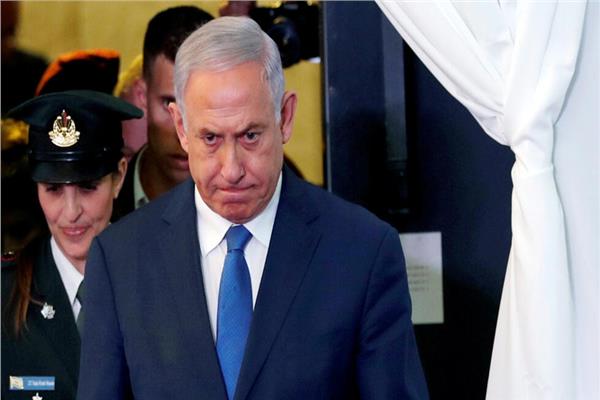Amos Yadlin, former head of the Israeli military intelligence division Aman, sharply criticized Prime Minister Benjamin Netanyahu on Monday, stating that Netanyahu’s goal is not the security and interest of Israel but political survival. Yadlin called for reaching an agreement with Hamas, even if partial.
In an interview with Israeli radio 103 FM, Yadlin said, “Netanyahu’s strategic goal does not stem from Israel’s security and national interests but from his political survival.”
The former intelligence official added, “Buying time is the strategy, which is why Netanyahu does not decide to leave the delegation (of indirect negotiations with Hamas), who will lead it, or where it will go.”
Netanyahu has delayed responding to the latest agreement proposal approved by Hamas, while the Israeli opposition accuses the prime minister of prolonging the war to maintain his government. Some ministers threaten to withdraw, risking the government’s collapse if an agreement to end the war is pursued.
Yadlin said, “The prime minister must convince us if he even cares because it seems to me he no longer considers public opinion in Israel or even his Chief of Staff (Eyal Zamir).”
Families of Israeli captives and the opposition pressure Netanyahu to accept the offered agreement, but he pushes toward occupying Gaza City despite army warnings that this operation will lead to the deaths of captives and soldiers.
On Sunday, Zamir warned Netanyahu during a visit to a naval base in Haifa that “occupying Gaza City may pose a severe danger to the captives’ lives,” noting that “the army has provided the conditions to complete” the exchange deal.
Earlier today, a poll by the Agam Research Institute showed that 74% of Israelis support ending the war on Gaza through a prisoner exchange deal, while 26% oppose it.
Regarding the possibility of returning to war even after an agreement, Yadlin said, “Everything Hamas obtains in negotiations can be reversed, but there are irreversible issues.”
He added, “The lives of our brothers and fighters are a moral commitment of the government due to an event that occurred during its term, and it must put an end to the war on the table. We should have done this months ago.”
“The whole world wants to stop the war. If the prime minister truly intends to end the war, he can resort to the partial agreement,” he said.
Referring to the mediators’ proposal accepted by Hamas, Yadlin called to “utilize the sixty-day ceasefire period on the table.”
The proposal accepted by Hamas includes a 60-day ceasefire in exchange for releasing 10 live Israeli captives and 18 deceased, the army withdrawing to positions near Gaza’s borders, allowing humanitarian aid, and releasing hundreds of Palestinian prisoners from Israeli jails.
Yadlin said, “There are ten hostages who could be seen in their homes almost tomorrow. Part of the agreement should include Red Cross visits to the remaining ten to ensure they receive food and medical care,” noting that “Hamas is very interested in the ceasefire.”
He continued, “We have pressure tools but do not use them. Hamas will not agree to complete disarmament and Israeli security control, but in my opinion, it will agree to all other matters.”
He explained, “It will agree to relinquish civil rule and the fact that all hostages must be returned, and that Israel should have some control over Gaza’s reconstruction. There is a large room for negotiations here, but they simply have not started.”













Recommended for you
Exhibition City Completes About 80% of Preparations for the Damascus International Fair Launch
Talib Al-Rifai Chronicles Kuwaiti Art Heritage in "Doukhi.. Tasaseem Al-Saba"
Unified Admission Applications Start Tuesday with 640 Students to be Accepted in Medicine
Egypt Post: We Have Over 10 Million Customers in Savings Accounts and Offer Daily, Monthly, and Annual Returns
His Highness Sheikh Isa bin Salman bin Hamad Al Khalifa Receives the United States Ambassador to the Kingdom of Bahrain
Al-Jaghbeer: The Industrial Sector Leads Economic Growth